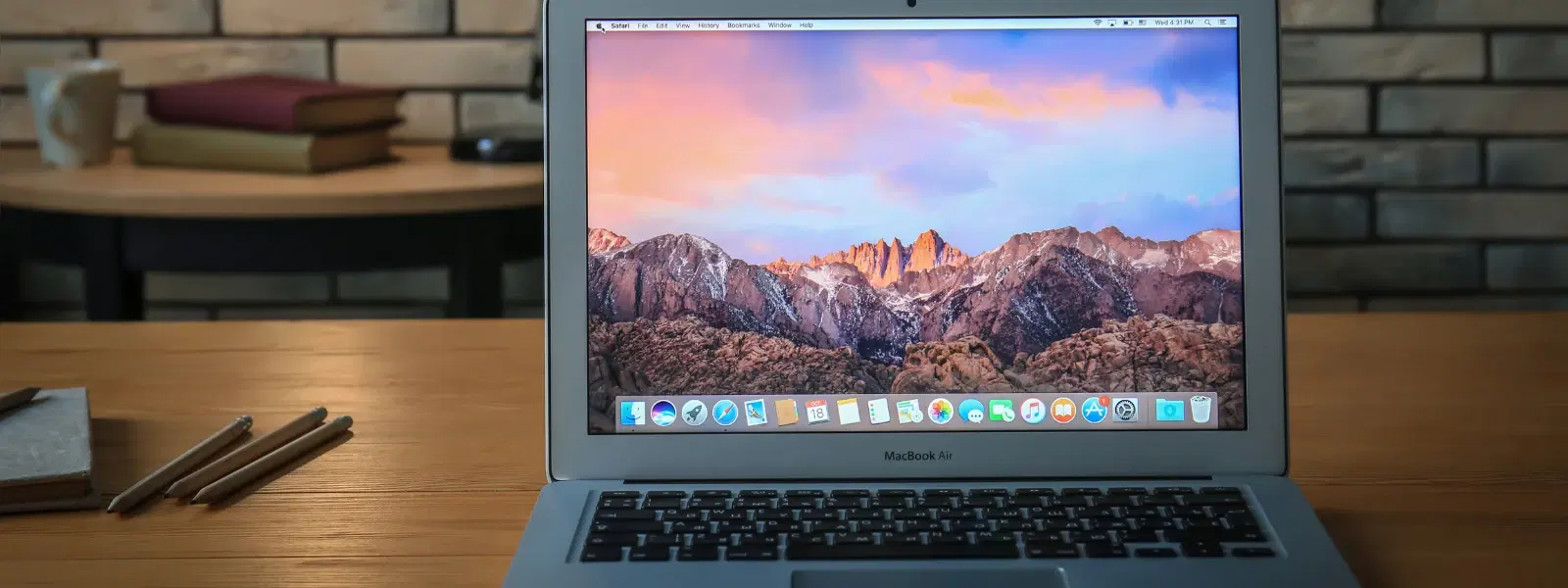
Consumer Electronics
•04 min read
Ever struggled to capture the perfect screenshot on your Mac? Whether you are a seasoned user or a beginner, mastering screenshot techniques can save time and boost your productivity. This guide presents a comprehensive checklist on how to capture screenshot on mac, offering step-by-step insights on shortcuts, tools, saving options, and expert tips.
Screenshots play a vital role in sharing information, troubleshooting, or simply saving visual content. Mastering screen capture options can simplify your workflow and is essential for both personal and professional tasks. Knowing exactly how to capture screen on mac efficiently will help you work smarter.
You have several options when taking a screenshot:
Capture the entire screen
Capture a specific portion of the screen
Capture a window or menu
Screenshot the Touch Bar on a MacBook Pro
Learn these simple keyboard commands to take screenshot on macbook and enhance your productivity:
Cmd + Shift + 3: Capture the entire screen
Cmd + Shift + 4: Capture a portion of the screen
Cmd + Shift + 5: Open the Screenshot toolbar for advanced options, useful when you want to record the screen or set a timer
Cmd + Shift + 6: Screenshot the Touch Bar (specific to MacBook Pro)
You can tailor your mac screenshot shortcut commands via System Preferences to suit your workflow. This customisation ensures that you get the most efficient experience when you decide to take screenshot on macbook pro or any Mac device.
The Cmd + Shift + 5 command brings up the Screenshot toolbar. This tool offers a range of features including recording your screen, choosing where to save screenshot on mac, setting a timer, and more. It is an all-in-one solution for most screen capture needs.
There are many useful screenshot tools for mac that provide advanced editing and cloud storage options. These tools offer features like fine-tuned image adjustments and the convenience of storing your captures safely, making it easier to capture screen on mac for various purposes.
After capturing your screenshot, use the Floating Thumbnail feature for quick edits. For more detailed modifications, Preview and Markup tools provide an effective solution while maintaining the ease of the process.
By default, all screenshots are saved to your Desktop. However, you can change the save location via the Screenshot toolbar options, allowing you to organise your files better. This feature is especially useful if you often need to save screenshot on mac for later review.
If you prefer not to save screenshots as files, you can copy them directly to your clipboard by using the commands Cmd + Ctrl + Shift + 3 or Cmd + Ctrl + Shift + 4. This method makes it easy to paste screenshots into documents or emails with a simple Cmd + V action.
Creating a systematic approach to managing your screenshots is key. Rename and categorise your files according to projects or dates. For enhanced accessibility, consider using cloud storage solutions which complement platforms like Tata Neu where customers enjoy benefits including NeuCoin rewards for smart, efficient shopping.
Did you know that you can disable the Floating Thumbnail to speed up the saving process? Simply go to Options in the Screenshot toolbar and uncheck "Show Floating Thumbnail." This is perfect for users who need quick and uninterrupted workflows, making it easier to take screenshot on macbook without delay.
For those who like to explore further, advanced methods such as using Terminal for command line screenshots or QuickTime Player for recording your screen can be very beneficial. These techniques offer additional flexibility and are excellent for users who require high-resolution screenshot captures. Additionally, keeping in mind our mac keyboard screenshot command tips can further enhance your proficiency in screen capturing.
If you find that your screenshots are not saving, double-check your save location settings and make sure you have sufficient disk space. Simple adjustments can resolve most issues.
Ensure that your shortcut settings in System Preferences remain enabled. Sometimes, a quick restart or a check for macOS updates can fix any disruption in the mac screenshot guide process.
If the toolbar has vanished, you can easily re-enable it using Cmd + Shift + 5. This will restore your access to advanced screen capture options, ensuring continuous productivity.
Use the Markup tools available in the Floating Thumbnail or Preview app to crop your screenshot.
By default, screenshots are saved to your Desktop. You can change the save location via the Screenshot toolbar.
Use Cmd + Ctrl + Shift + 3 or Cmd + Ctrl + Shift + 4 to copy the screenshot to your clipboard. Then paste it using Cmd + V.
Although Mac does not have a dedicated snipping tool, the Screenshot toolbar (Cmd + Shift + 5) provides similar functionality.
Press Cmd + Shift + 6 to capture the Touch Bar on MacBook Pro models.
Mastering Mac screenshot techniques is essential for anyone looking to save time and boost productivity. This checklist has covered the basics, keyboard shortcuts, useful tools, and troubleshooting tips to help you capture your screen like a pro every time. Whether you're editing a document for work or sharing a fun moment with family, these screen capture tips for mac ensure you get it right. And remember, platforms like Tata Neu allow you to earn NeuCoins rewards, reflecting a commitment to quality and convenience that today’s tech-savvy users appreciate.